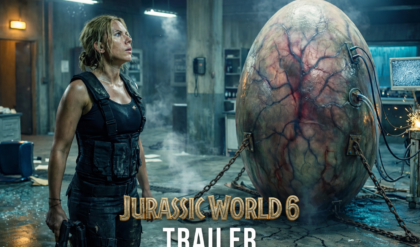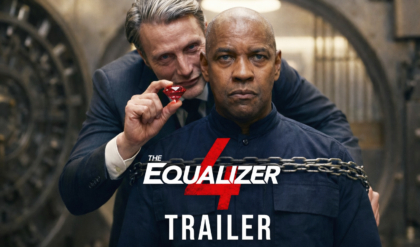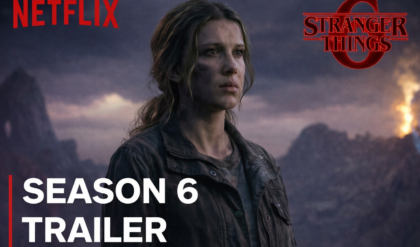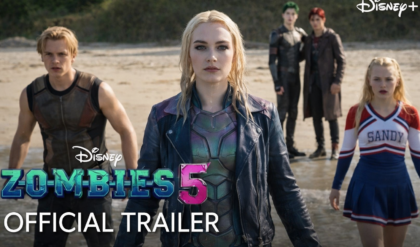In the high-stakes world of AAA gaming, where budgets routinely soar into the hundreds of millions, Ubisoft’s Assassin’s Creed Shadows stands out as a colossal undertaking. With a reported $300 million price tag, the game promised to deliver a breathtaking journey through feudal Japan, blending stealth, combat, and a richly detailed open world. Yet, one aspect of the game has unexpectedly stolen the spotlight: its romance scenes. Far from captivating players, these moments—intended to add emotional depth to protagonists Naoe and Yasuke—have left fans wincing, laughing, and flooding social media with cries of “cringe.” The sentiment, summed up by a viral fan post, “Ubisoft spent $300 million to write those romance scenes,” has sparked heated debate about storytelling, budget priorities, and whether Ubisoft misjudged what its audience wanted. Let’s dive into the controversy, explore why these scenes fell flat, and examine what it means for the future of the franchise.
The Romance Scenes: What Went Wrong?
Assassin’s Creed Shadows introduces players to Naoe, a stealthy shinobi, and Yasuke, a historical Black samurai, whose contrasting playstyles anchor the game’s narrative. Romance options, a feature carried over from predecessors like Odyssey and Valhalla, allow players to pursue relationships with various NPCs, including same-sex and non-binary characters. Ubisoft touted these scenes as a way to deepen character development, offering players choice and emotional stakes in a war-torn Japan. On paper, it’s a compelling addition to a series known for its sprawling stories. In execution, however, the romance scenes have been met with near-universal derision.
Fans describe the dialogue as stilted and overly melodramatic, with lines that feel ripped from a low-budget soap opera. One widely shared clip features Naoe confessing her feelings to a fellow shinobi under a cherry blossom tree, only to deliver a monologue peppered with clichés like, “My heart beats only for the shadow of your soul.” The NPC’s response—“Then let our shadows dance as one”—prompted an outpouring of secondhand embarrassment on X, where users posted GIFs of characters recoiling in horror. Yasuke’s romance scenes fare no better, with one encounter involving a poet who compares his strength to “a mountain kissed by dawn,” a line that sparked memes about Ubisoft’s writers trying too hard to sound profound.
The delivery doesn’t help. Voice acting, while generally solid in the main story, feels flat in these moments, with actors struggling to sell awkward scripts. Animations are another sore point: characters often stand rigidly or clip through each other during embraces, breaking immersion. One Reddit thread with thousands of upvotes showcased a bug where Yasuke’s love interest floated mid-air during a kiss, captioned, “$300 million well spent.” Timing is also an issue—romance scenes sometimes trigger abruptly, like when Naoe pauses mid-stealth mission to flirt with a guard, leaving players baffled at the tonal whiplash.
Fan Reactions: Laughter and Frustration
The backlash has been swift and unrelenting. On platforms like X, fans have turned the romance scenes into a running joke, with hashtags like #ACShadowsCringe and #RomanceFail trending sporadically. Streamers amplify the chaos, pausing gameplay to read dialogue aloud in exaggerated voices, often dissolving into laughter as chat spams crying emojis. A Twitch clip that went viral showed a player triggering a romance scene only to yell, “Who wrote this? Fire them!” to the delight of thousands of viewers. Even positive reviews of Shadows—which praise its visuals and combat—often include disclaimers about the “painfully awkward” romances.
Beneath the humor lies genuine frustration. Fans argue that Ubisoft, with its massive budget, should have delivered better. The $300 million figure, while covering the entire game, has become a lightning rod for criticism, with players joking that “half went to cherry blossom CGI and the other half to bad poetry.” Many feel the romance scenes detract from the core Assassin’s Creed experience, which has traditionally focused on stealth, parkour, and historical intrigue. “I’m here to stab templars, not woo NPCs with lines from a rejected rom-com,” one Redditor wrote, echoing a common sentiment.
Some fans take issue with the inclusion of romance itself, arguing it feels shoehorned into a series that doesn’t need it. Others are more open to the concept but criticize the execution, pointing to games like The Witcher 3 or Baldur’s Gate 3, where romances are nuanced and impactful. Ubisoft’s attempt to make relationships optional, including a “Canon Mode” where Naoe and Yasuke remain single, hasn’t quelled the complaints. Players still encounter flirtatious dialogue in side quests, and those who engage with the romance system often regret it, citing shallow character motivations and predictable outcomes.
The Bigger Picture: Budget and Priorities
The $300 million budget for Shadows—one of the highest in gaming history—adds fuel to the fire. While Ubisoft hasn’t broken down the costs, fans speculate that resources were misallocated, with too little spent on writing and polish. Developing a game of this scale involves thousands of employees, from artists to coders, and Shadows faced delays that reportedly added $21 million to the tab. Yet, the romance scenes suggest corners were cut where it mattered most: storytelling.
Writing for games is notoriously challenging. Unlike films, where dialogue drives the narrative, games must balance player agency, branching paths, and interactive systems. Shadows’ romance system, with its multiple partners and outcomes, likely required extensive scripting, but the results feel rushed. Fans point to Ubisoft’s reliance on formulaic open-world design—collectibles, outposts, repetitive missions—as evidence that narrative took a backseat. “They spent millions on a map the size of Japan but forgot how to write a conversation,” one X post read, summing up the critique.
Comparisons to other studios highlight the gap. Larian Studios, with a fraction of Ubisoft’s budget, crafted Baldur’s Gate 3’s romances with wit and emotional weight, earning widespread acclaim. CD Projekt Red’s Cyberpunk 2077, despite its rocky launch, delivered compelling relationships that felt integral to the story. Ubisoft’s track record with romance isn’t stellar either—Odyssey and Valhalla faced similar complaints about shallow love interests—but Shadows was expected to raise the bar, given its long development and fan demand for a Japan-set entry.
Ubisoft’s Response and the Romance Debate
Ubisoft hasn’t stayed silent. In a statement posted on X, the developer acknowledged feedback about the romance scenes, saying, “We’re listening to your thoughts on all aspects of Assassin’s Creed Shadows, including its narrative elements. Flirting and relationships are optional, and we’re exploring ways to refine the experience in future updates.” The response, while measured, hasn’t satisfied everyone, with fans demanding more than vague promises. Some call for a complete overhaul of the romance system, while others suggest scrapping it entirely in future titles.
The controversy also taps into a broader debate about romance in games. For some, it’s a welcome way to personalize their journey, especially in RPGs where choice matters. Shadows’ inclusion of queer and non-binary romance options earned praise from players who value representation, but even they admit the execution falters. Critics argue that Ubisoft chased trends—copying Mass Effect or Dragon Age—without understanding what makes those games’ relationships resonate. A poorly written romance, regardless of who it involves, risks feeling like a checklist item rather than a meaningful story beat.
There’s also the question of audience. Assassin’s Creed has a diverse fanbase, from casual players to diehard lore enthusiasts. Not everyone wants romance in a game about assassins, especially when it disrupts the flow of sneaking through rooftops or battling samurai. Ubisoft’s attempt to please everyone—offering optional romances, a Canon Mode, and a massive world—may have spread the team too thin, resulting in a feature that feels half-baked.
The Fallout: What’s at Stake?
The romance backlash comes at a precarious time for Ubisoft. The company has faced financial woes, with a declining stock price and underperforming titles like Star Wars Outlaws. Shadows was meant to be a savior, leveraging the long-requested Japan setting to win back fans. While the game has sold well—reportedly reaching 3 million players in its first week—the negative buzz around its romance scenes risks overshadowing its strengths, like its lush visuals and refined stealth mechanics.
Social media amplifies the criticism. On X, posts mocking the dialogue garner thousands of likes, while YouTube essays dissecting “what went wrong” rack up views. The memes are relentless—one popular image shows Naoe whispering sweet nothings to a confused horse, captioned, “Ubisoft romance in a nutshell.” This kind of viral negativity can dent a game’s reputation, even if it’s only one part of a larger package. For Ubisoft, the stakes are high: another PR misstep could erode trust further.
Looking Ahead
So, where does Assassin’s Creed Shadows go from here? Ubisoft has a history of post-launch support, as seen with Unity’s bug fixes and Odyssey’s content updates. A patch could refine the romance scenes—tweaking dialogue, fixing animations, or adding depth to NPC backstories—but overhauling them entirely seems unlikely. The developer might instead focus on new content, like DLC missions or multiplayer modes, to shift attention from the controversy.
For fans, the cringe-inducing romances are both a disappointment and a source of amusement. The community has already turned the worst lines into catchphrases, with streamers jokingly reciting them during unrelated games. This ability to laugh off flaws shows the resilience of Assassin’s Creed’s fanbase, but it also signals a demand for better. If Ubisoft wants to keep players invested, it’ll need to prioritize polish and listen to feedback, especially on narrative elements that shape how players connect with the world.
Ultimately, the $300 million romance saga is a cautionary tale about ambition and execution. Assassin’s Creed Shadows aimed to be everything—an epic adventure, a historical drama, a personal journey—but stumbled in its attempt to weave love into the chaos of feudal Japan. As fans continue to cringe, laugh, and meme, one thing’s clear: Ubisoft’s heart was in the right place, but its words got lost in translation. Whether the next chapter learns from this misstep will determine if the franchise can reclaim its place as a storytelling powerhouse—or if it’ll be remembered for lines that made players blush for all the wrong reasons.





